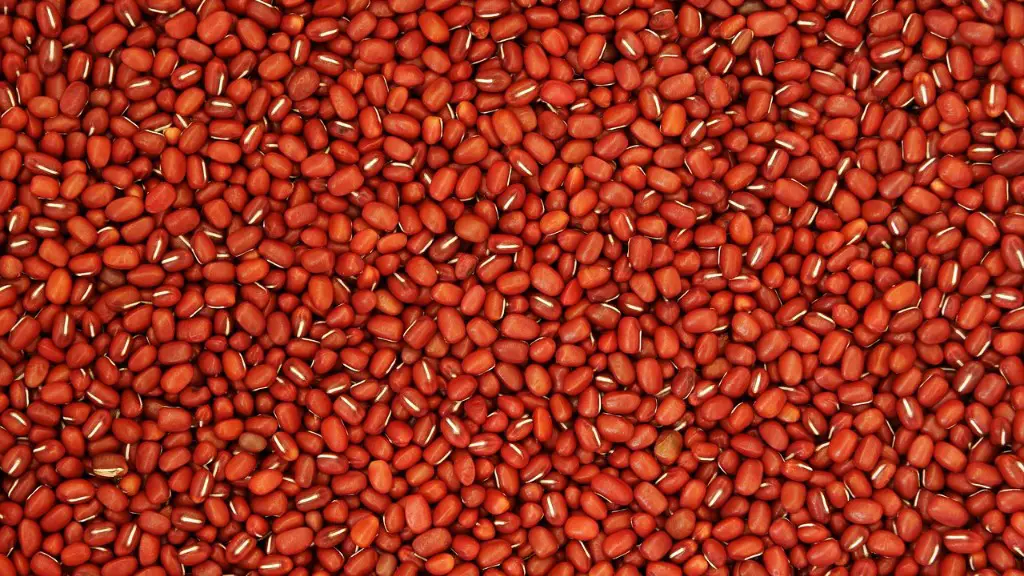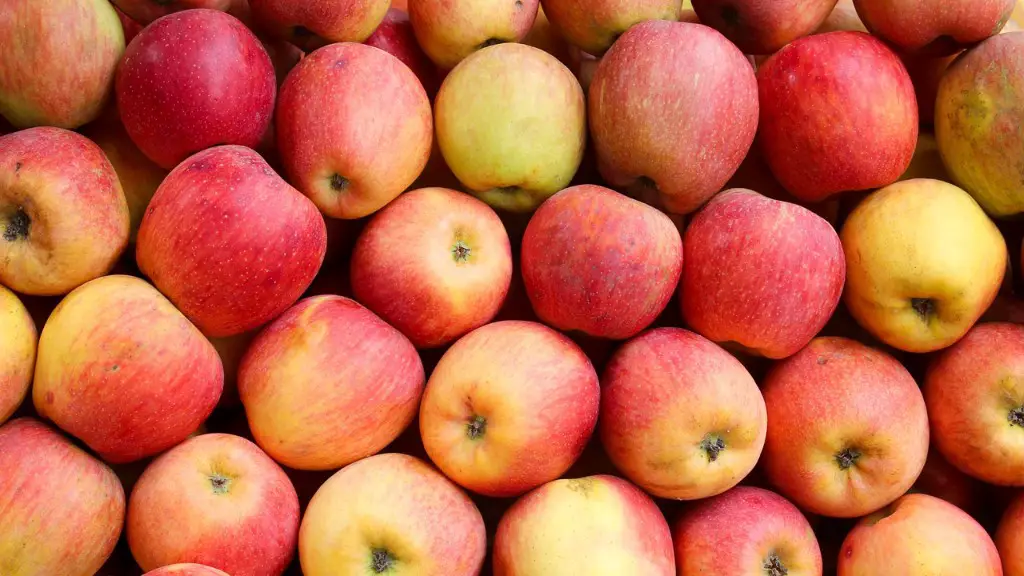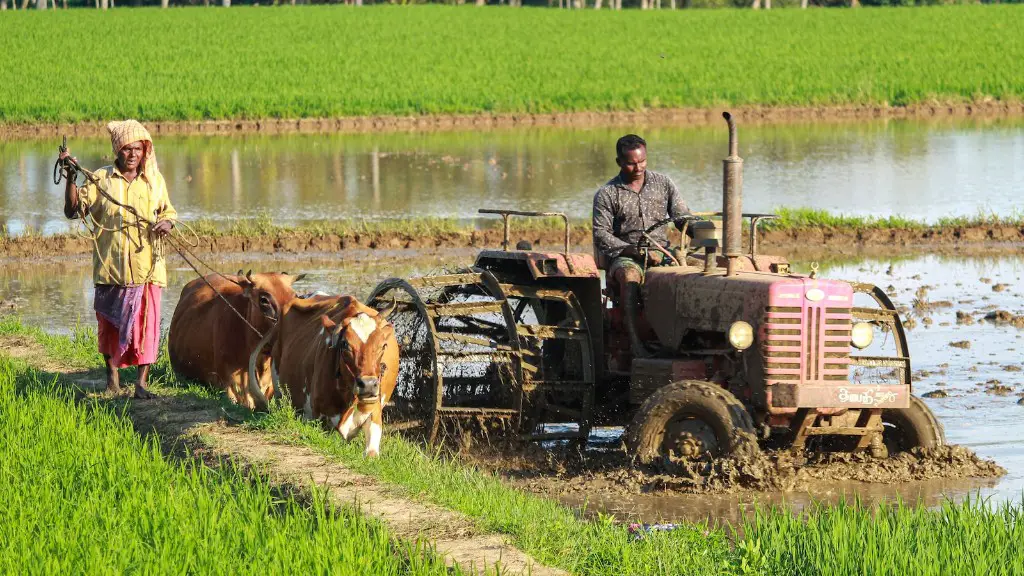Agriculture has revolutionized the way human societies have formed and thrived, paving the way for a range of cultural, technological and societal innovations. Dating back as far as 10,000 BCE, it’s no surprise that farming, and the food it produces, has played a powerful role in the development of civilization. Though many other factors contribute to the success of a civilization, agriculture has been considered one of the primary factors because of its direct impact on the sustainment and growth of populations.
The ability to store and control the production of food was the first step in allowing human society to settle in certain places and form villages, towns and cities. When communities had access to an agricultural surplus, they could specialise in certain kinds of labor and develop crafts, technology and a trading economy, instead of worrying about foraging for food and shelter.
Agriculture also enabled the growth of populations. People, who had a reliable supply of food, had the means and confidence to create families and balance the demands of labor. Crops like wheat, rice and other staples resulted in diets that were sturdier, dependable and enough to be easily shared with extended family.
The manipulation of land and soil lead to increased land fertility and the ability to cultivate multiple crops, while animals could pull ploughs and transport heavier loads than humans. Urban centres sprung up and trading centres began to form, spurring the growth of craftsmanship, service industries and leisure activities.
Agriculture has helped to shape cultures, traditions and rituals. Very often, spiritual reasons were given to explain why certain crops should prosper and why certain birds should nest in a particular field. Religion and government, which often developed around the ideology of food and feeding, developed over the centuries in synchrony with the production of food.
Whether it is for sustenance, culture, civilisation or progress, there is no doubt that agricultural practices have been absolutely instrumental in the development of human society as we know it today. The physical, spiritual, economic and social impact it has had is unmatched and has changed the course of history.
Impacts on the Environment
Agriculture has had a vital impact on shaping the environment, for better or worse. As communities expanded and new technology was developed, land was cleared for farming to feed the growing population. This clearing of land has caused fragmentation and destruction of habitats, as well as the loss of biodiversity.
The physical qualities of land can also be changed due to intensified agriculture; soil erosion, desertification and changes in the water course can all be caused by improper land management. Chemical pollution from pesticides, fertilisers, and other contaminants is another hazard of overuse of the land.
Climate change is a particularly pertinent issue when talking about agriculture. In addition to the effects of emissions from industrialised farming, the effects of monoculture, altered land use and overgrazing can lead to changes in climate, water availability and weather patterns.
The introduction of new farm animals, crops, and insecticides can lead to a disruption in the natural balance of any environment; the changes in land microbial populations, beetle populations and decline in natural pollinators are all examples of the environmental impacts of agriculture.
In order to mitigate these impacts, governments and farmers alike must develop strategies to sustainably use their land and preserve the environment. By utilising precision agriculture methods and incorporating innovative technologies, farmers can use their land more efficiently and reduce their impact on the environment.
Impacts on Public Health
The health of communities and populations is connected to agriculture in several ways. Poor nutrition and unbalanced diets are often caused by a lack of access to high-quality food, due to either cost or geography. Additionally, local harvests and production may not be as accessible for certain populations, leading to a lack of variety and poor food choices.
The way food is produced can also have an impact on public health. Industrialised farming can cause an increase of toxins and pollutants, which can be detrimental to human health. Additionally, the more efficient and larger scale of production has increased the prevalence of food-borne illnesses, such as salmonella.
Animal farming practices can also have terrible impacts on the public health. Improper handling of animals, inadequate disposal of animal waste, and the introduction of other animals are all possible paths for diseases, viruses, and other pathogens.
Agricultural policies must be developed to reflect the best interests of both farmers and public health. This would include increased regulation on food production, reducing the amount of toxins released in the environment, and ensuring the humane treatment of animals.
Agricultural practices, both good and bad, have a great effect on the health of individuals and populations. To ensure a safe food supply for the public, governments and industry must work together to develop and implement policies that ensure food safety and quality.
Social Implications of Agriculture
Agriculture, in addition to its physiological impacts, has had far-reaching ramifications on societies at large. In many cultures, labour-intensive and segregated activities were practiced, where women and lower-castes were relegated to certain kinds of jobs that were considered too burdensome or hazardous for the men.
In less developed countries, especially, the agricultural sector is often the largest employer, thus it dictates a country’s patterns of social organisation and its hierarchy between classes. When the sector faces tough conditions, it can be difficult for lower–class people or indigenous people to survive due to the limited access to resources or education.
When agriculture goes wrong, it can result in mass migration as people search for better opportunities, or famine as supply and demand are out of balance. Environmental problems and unethical practices, such as land grabbing, can lead to widespread civil unrest, conflict and displacement.
Agriculture can also lead to a conflict between traditional and modern farming techniques. This can occur when the successful application of new practices, such as the use of machinery and introduction of new crops, challenges well-established cultural identities and farming operations.
The future of agriculture has to take into account global trends and implications on socioeconomic structures, and not just the physical and environmental ones. Societal changes are necessary to ensure durable and ethical practices, as well as a healthy level of competition to ensure the spread of progress and sustain the global population.
Financial Implications of Agriculture
The agricultural sector is a major contributor to global economies, it’s estimated that it accounts for approximately 10% of the world’s GDP. The sector can have a large impact on countries, both financially and macro-economically.
Farmers contribute to a country’s economy in multiple ways. Their profits contribute to developmental activities or invest in new technologies. Farmers contribute to the country’s revenue through taxes, which in turn can be used to fund economic infrastructure development.
The agricultural sector can also serve as a buffer against poverty and contribute towards bridging theincome gap. This means that people living in rural areas, and who lack access to other sources of income, can benefit greatly from the agricultural sector.
Agriculture can also have a large impact on the availability of certain foods. Prices of commodities are determined by their availability and the demand its market holds. For instance, when a food or crop is in surplus due to its abundance in the market, its prices tend to drop, where as when it is in a limited supply, prices increase.
Agriculture can also be affected by geopolitical changes and globalisation. Trade wars, protectionist policies, sanctions, and other conditions can impact the prices of agricultural products, both locally and globally.
Overall, agricultural production has a major influence on global economics. Its output and overall volatility affects the prices of commodities, global market movements, and the economic stability of countries and regions.
Impacts on Employment and Economics
Agriculture is a rapidly evolving sector, with new technology and modern methods of production entering the space, leading to shifts in the way that labor is used for farming. With mechanization and automation, the number of jobs being occupied by humans is decreasing drastically.
This can have severe consequences for the communities employed in the agricultural sector. With fewer job openings, wages and salaries may shrink and with them the chances for better living conditions. It is necessary for governments and educational institutions to address this problem and create new opportunities.
The growth of the agricultural sector is usually seen as the main factor in poverty alleviation since it provides employment opportunities and food resource to the most impoverished populations. Innovative technologies and new farm methods can encourage investments and unlock economic growth within small and large-scale farms.
Agricultural productivity is also a key factor in determining economic success. A highly productive agricultural operation can increase profits, wages, and economic development opportunities, while a less productive one can cause a country to fall behind in terms of its economic growth.
The introduction of new industries, such as agribusiness, can help to provide additional resources, allowing rural populations to have access to better living standards and increased incomes. Additionally, agribusinesses can have a greater impact on the global economy by trading and exporting locally produced goods.
Finally, new agricultural policies can encourage investment and create opportunities for growth. By providing incentives for farmer’s cooperatives, government-sponsored support for farming, and financial aid for new technologies, governments can help farmers to increase their efficiency and output and help to spur on economic development.





